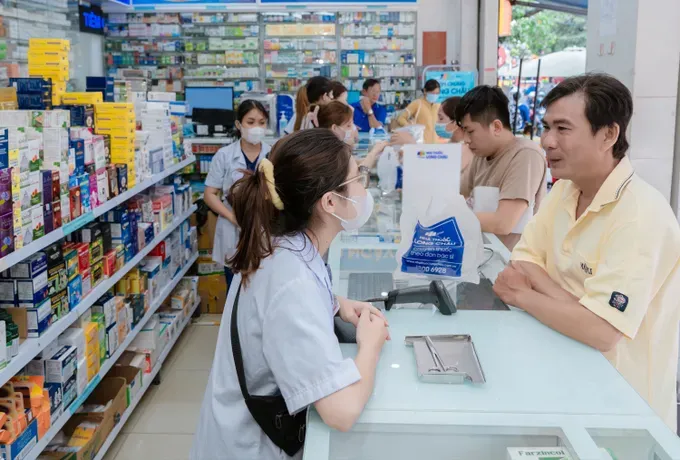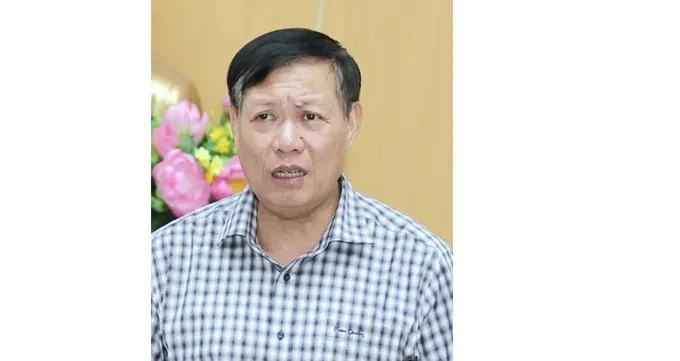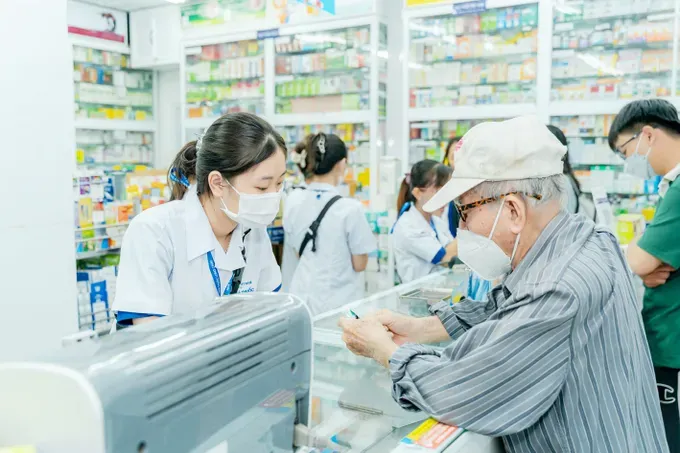
The first half of 2025 has seen the successive discovery and dismantling of numerous rings producing counterfeit drugs, fraudulent milk products, and fake functional foods across various localities.
When explaining the responsibility of the health sector and local authorities for these issues, Deputy Minister Do Xuan Tuyen shared that in numerous instances, the MoH has issued specific directives, mandating provincial health departments to coordinate closely with police and market surveillance forces for prompt verification and resolution, such as the case of a counterfeit drug manufacturing ring in Thanh Hoa Province.
Besides, the MoH places paramount importance on grassroots-level inspection and supervision. Only through proactive inspection and oversight by commune and ward-level authorities, in conjunction with primary healthcare forces, can violations be detected early, enabling definitive action and preventing the establishment of local networks trading in counterfeit drugs and fraudulent functional foods.
As to the concern that problem solving merely culminates in product recalls, without pursuing offenders to the fullest extent, or the uselessness of inspection with announcement in advance, the Deputy Minister stressed that pre-notified inspections are appropriate only when providing technical expertise or guidance on regulatory compliance.
However, given the prevalence of sophisticated and organized illicit activities, unannounced inspections serve as the most potent tool for detecting violations. Moreover, many offending establishments currently face relatively lenient financial penalties, despite the actual value of the infractions and their ensuing consequences being substantially greater.
Consequently, the MoH is collaborating on amending relevant legal normative documents to include more stringent sanctions, including the application of criminal prosecution where sufficient grounds exist. It is unequivocally affirmed that any officials or civil servants found abetting such activities or demonstrating loose management will be subject to strict disciplinary action in accordance with the law and public service ethics.

Regarding the market instability of functional foods recently in Vietnam, coming from uncontrolled product quality as well as counterfeit and fake goods, Deputy Minister Do Xuan Tuyen admitted that there are actually tough challenges in management, especially as the policy allowing product self-declaration has, while streamlining processes for businesses, inadvertently created loopholes. Many enterprises exploit the exemption from submitting appraisal dossiers to make superficial, or even entirely falsified, product declarations.
The MoH is currently finalizing amendments to Decree No. 15/2018/ND-CP. These revisions will mandate appraisals for certain high-risk product categories, impose stricter controls on the self-declaration process, and require businesses to ensure product transparency from declaration and production through to circulation and advertising.
Concurrently, it is intensifying inspections and actions against false advertising, especially instances involving the impersonation of medical professionals or celebrities to deceive consumers.
Functional foods are actually under the supervision of food safety management agencies. Yet, the fact that these agencies are of various models in different localities has made this even more challenging for unity and collaboration.
In implementing Directive No. 17-CT/TW of the Secretariat, the MoH is finalizing two draft decrees. These aim to specifically regulate the decentralization of management responsibilities according to administrative levels and provide clear guidance on the organizational structure of specialized provincial-level agencies.
The objective is to ensure national consistency, enhance implementation efficiency, prevent regulatory lapses, and clearly delineate management accountability. The Ministry will also develop a set of criteria for evaluating local food safety management effectiveness, serving as a basis for annual inspections and assessments.

Finally, as to drug quality control and combats against counterfeit drugs in the market, the Deputy Minister first reported that at present, provincial-level facilities are unable to test approximately 30 percent of active pharmaceutical ingredients.
Since ensuring drug quality through rigorous testing is a core and continuous responsibility of the health sector, the MoH is urging investment in the national testing center system. This includes procuring modern equipment, providing specialized training, and undertaking comprehensive upgrades of testing capabilities from the central to local levels.
Controlling health sector fraud faces multifaceted challenges, namely legal inconsistencies, e-commerce proliferation, limited compliance awareness, and weak post-inspection enforcement. The MoH is developing a digital management system integrating drug, functional food, and complaint data, and petitioning for stronger legal penalties, both administrative and criminal.
However, alongside regulatory efforts, active participation from businesses and consumers is indispensable. The Ministry will continue promoting nationwide movements to denounce fakes and reject unknown-origin products, alongside communication campaigns to enhance public awareness, crucial for tackling this complex issue effectively.
Deputy Director Nguyen Quang Huy of the HCMC Market Surveillance Division has warned the public about counterfeiters mixing real and fake drugs before selling.
In 2024 and the first five months of 2025, the HCMC Market Surveillance Division conducted inspections and took action in 178 cases involving violations related to modern pharmaceuticals. This resulted in the temporary seizure of 262,158 product units, valued at over VND15.4 billion (US$605,100), and the imposition of fines exceeding VND2.2 billion ($86,444). Furthermore, four cases exhibiting criminal indicators were transferred to investigative agencies.
Regarding functional foods, the HCMC Market Surveillance Division inspected and addressed 38 violations, temporarily seizing 18,709 product units with a total value of over VND835 million ($32,800), and levied fines amounting to VND786 million ($30,884).
A new, perilous tactic involves perpetrators mixing genuine and counterfeit drugs before market release with the intention to deceive authorities, complicate inspection efforts, and establish initial consumer trust.
























